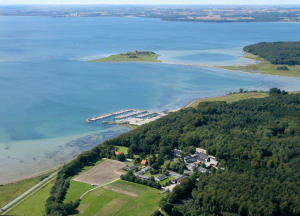 We have a new look for the website, a Facebook milestone, a webinar on culturally responsive teaching and a plea for help on the Edublog awards! We will be talking to two teachers about how they adapt to a diverse classroom.
We have a new look for the website, a Facebook milestone, a webinar on culturally responsive teaching and a plea for help on the Edublog awards! We will be talking to two teachers about how they adapt to a diverse classroom.
So we have updated the website to accommodate the new material we have on culturally responsive teaching. You can now also sign up for the Teaching Culture newsletter . Continue reading “refugees +++ integration +++ Denmark +++ Germany +++ Eddies +++ absolutely intercultural 196 +++”
Tag: communication
SIETAR +++ Third Culture Kid +++ Shelley Morrison +++ Lisa Liang +++ Alien Citizen +++ Absolutely Intercultural 192 +++
 In May I attended the SIETAR conference in Valencia, Spain and today I’m going to bring you two very different tastes from the conference. SIETAR is the Society for Intercultural Education Training and Research and we will be hearing about third culture kids and how to train people to work well together online. Continue reading “SIETAR +++ Third Culture Kid +++ Shelley Morrison +++ Lisa Liang +++ Alien Citizen +++ Absolutely Intercultural 192 +++”
In May I attended the SIETAR conference in Valencia, Spain and today I’m going to bring you two very different tastes from the conference. SIETAR is the Society for Intercultural Education Training and Research and we will be hearing about third culture kids and how to train people to work well together online. Continue reading “SIETAR +++ Third Culture Kid +++ Shelley Morrison +++ Lisa Liang +++ Alien Citizen +++ Absolutely Intercultural 192 +++”
Absolutely Intercultural 191 +++ Storytelling +++ Germany +++ Pakistan +++ Canada +++
The focus o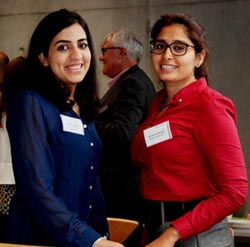 f today’s show is on storytelling and we hear from students and how they have used story telling in different situations including in work and at university. We also hear from an exchange student from Pakistan and learn about some of the cultural differences between Germany and Pakistan. Continue reading “Absolutely Intercultural 191 +++ Storytelling +++ Germany +++ Pakistan +++ Canada +++”
f today’s show is on storytelling and we hear from students and how they have used story telling in different situations including in work and at university. We also hear from an exchange student from Pakistan and learn about some of the cultural differences between Germany and Pakistan. Continue reading “Absolutely Intercultural 191 +++ Storytelling +++ Germany +++ Pakistan +++ Canada +++”
IATEFL +++ Manchester +++ Pakistan +++ Nepal +++ Bangladesh +++ Afghanistan +++ Zimbabwe +++ Cameroon +++ Absolutely Intercultural 190 +++
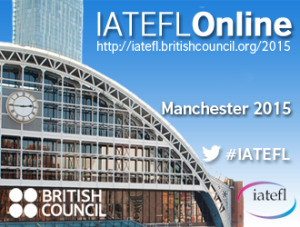 In this show I will be taking you to Bangladesh, Pakistan, Afghanistan, Nepal, Cameroon and Zimbabwe. For example why do people learn English in Pakistan? And what do you think the best way of delivering training would be to the semi-literate migrant workers of Bangladesh? This show includes snippets of recordings made at the IATEFL conference in Manchester last month. Continue reading “IATEFL +++ Manchester +++ Pakistan +++ Nepal +++ Bangladesh +++ Afghanistan +++ Zimbabwe +++ Cameroon +++ Absolutely Intercultural 190 +++”
In this show I will be taking you to Bangladesh, Pakistan, Afghanistan, Nepal, Cameroon and Zimbabwe. For example why do people learn English in Pakistan? And what do you think the best way of delivering training would be to the semi-literate migrant workers of Bangladesh? This show includes snippets of recordings made at the IATEFL conference in Manchester last month. Continue reading “IATEFL +++ Manchester +++ Pakistan +++ Nepal +++ Bangladesh +++ Afghanistan +++ Zimbabwe +++ Cameroon +++ Absolutely Intercultural 190 +++”
absolutely intercultural 157 +++ CSR +++ students view +++ real life projects +++ community work +++ school children +++ elderly people +++
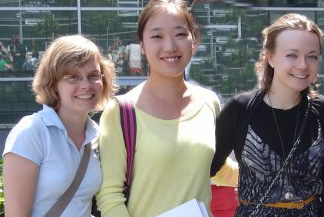 Today I would like to pick up the topic of your last show. We talked about CSR which stands for “Corporate Social Responsibility”. In times of global markets and increased business competition, Small and Medium sized Enterprises must find a way to increase their competitive edge. Therefore they often try to save costs as a result of competitive conditions and market instabilities. However, maybe a cultural change in companies will give them a competitive advantage? Implementing and practicing CSR may lead to increased costs and you may not see the benefits immediately. So why do successful companies go in that direction? Apparently around 50% of American and European SMEs believe that CSR-activities are somewhat effective for their business. SMEs can change their company culture and provide significant benefits by investing in small, efficient projects in society to increase their own visibility in the community. Some companies may do something good for the environment or donate money and others might start working in close cooperation with Non-Profit and Non-Governmental Organizations. This time I would like to approach the topic from a different angle. CSR is becoming more and more important in business life and thus future managers should have a solid knowledge about it. In previous shows I talked to CSR specalists such as lecturers from different European universities and employees of companies which have implemented CSR in their business plans. Our focus was to find out how CSR work changes the culture within the company but also the contacts between a company and its stake holders. Today my focus is on students and what they learn about CSR during their studies of Business Administration. I interviewed students from Hungary, Russia, and Mongolia who dealt with corporate culture and CSR in their last semester at RheinAhrCampus in Germany in one of my courses called “International Business Simulations”.
Today I would like to pick up the topic of your last show. We talked about CSR which stands for “Corporate Social Responsibility”. In times of global markets and increased business competition, Small and Medium sized Enterprises must find a way to increase their competitive edge. Therefore they often try to save costs as a result of competitive conditions and market instabilities. However, maybe a cultural change in companies will give them a competitive advantage? Implementing and practicing CSR may lead to increased costs and you may not see the benefits immediately. So why do successful companies go in that direction? Apparently around 50% of American and European SMEs believe that CSR-activities are somewhat effective for their business. SMEs can change their company culture and provide significant benefits by investing in small, efficient projects in society to increase their own visibility in the community. Some companies may do something good for the environment or donate money and others might start working in close cooperation with Non-Profit and Non-Governmental Organizations. This time I would like to approach the topic from a different angle. CSR is becoming more and more important in business life and thus future managers should have a solid knowledge about it. In previous shows I talked to CSR specalists such as lecturers from different European universities and employees of companies which have implemented CSR in their business plans. Our focus was to find out how CSR work changes the culture within the company but also the contacts between a company and its stake holders. Today my focus is on students and what they learn about CSR during their studies of Business Administration. I interviewed students from Hungary, Russia, and Mongolia who dealt with corporate culture and CSR in their last semester at RheinAhrCampus in Germany in one of my courses called “International Business Simulations”.
absolutely young
In our first category I asked Katalin Perjési from Hungary what she thinks about CSR and what she learnt on the course. She will tell us about a project where the students designed and implemented their own CSR projects for the university. They invited school children to the campus to teach them about respect and diversity in the community. Some said afterwards that they walk past the university every day but had never dreamed of spending a day inside before they reach their A-levels. As these were school children who often get taught in classes with many national backgrounds it was not so surprising, how much they already knew about diversity, respect for different cultures and dealing with other children who do not have the same first language.
absolutely green
I interviewed Nadya Kokareva from Russia. She will tell us about the vague ideas people have about CSR and gives us some examples of how a university could practice CSR. This is not exclusively about institutions “going green”, which means saving the environment. Nadya also took part in the course and participated in another project. This time, the target group were not the children in the community, but the elderly people who live in a nursing home just 800 metres from campus. In spite of the proximity, the students who took part in the project had never visited the home.
absolutely courageous
Oyunbileg is an exchange student from our Turkish partner university in Izmir. However, she is originally from Mongolia and is currently doing her Erasmus semester abroad. In our last category she will talk about her theoretical lectures on stakeholder relationships and relates the theory to the practical CSR projects she was involved in last semester. Finally she gives us an idea of the cultural differences she experienced moving between Mongolia, Turkey and Germany.
Our next show will again be coming to you on 7 of September.
Until then –
Bleiben Sie absolut interkulturell!
The host of this show is: Dr. Laurent Borgmann
Editor: Markus Scherer
![]() Download
Download
![]() Podcast-Feed
Podcast-Feed
![]() iTunes-Abo
iTunes-Abo
absolutely intercultural 156 +++ Corporate Social Responsibility +++ Theory & Practice +++ Sceptical Point of View +++ Turkcell +++ Success stories +++ European Companies +++ Non-Profit Organization +++
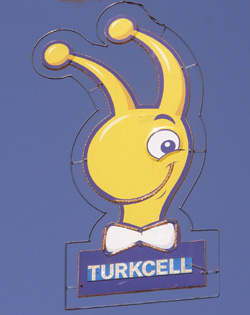 Today I am going to talk about CSR which is short for “Corporate Social Responsibility”. In postmodern times, “Corporate Social Responsibility” has enabled companies to do something good for society and to give something back to the community. Some companies may plant trees or donate money and others might start working in close cooperation with Non-Profit and Non-Governmental Organizations to help people in need. I visited an intercultural Erasmus Intensive Program at Yasar University in Izmir, Turkey, where I got in touch with the big Turkish telecommunications company called “Turkcell”. Together with Corporate Responsiblitly Specialists from Turkcell and university lecturers, who teach CSR-related aspects of marketing we talked about good practice examples of CSR but also about the dark sides of the concept.
Today I am going to talk about CSR which is short for “Corporate Social Responsibility”. In postmodern times, “Corporate Social Responsibility” has enabled companies to do something good for society and to give something back to the community. Some companies may plant trees or donate money and others might start working in close cooperation with Non-Profit and Non-Governmental Organizations to help people in need. I visited an intercultural Erasmus Intensive Program at Yasar University in Izmir, Turkey, where I got in touch with the big Turkish telecommunications company called “Turkcell”. Together with Corporate Responsiblitly Specialists from Turkcell and university lecturers, who teach CSR-related aspects of marketing we talked about good practice examples of CSR but also about the dark sides of the concept.
absolutely helpful
Turkcell afford to have a dedicated department which only deals with CSR issues. In our first category Burcu Haylaz tells us, how their company is doing charity work in Turkey and how quickly they took action after a horrific earthquake struck the province of Van in Eastern Turkey in 2011. Besides that I was really captivated by the “Snowdrops” project for young women and by the idea of the digital moneybox for collecting contributions from the wider public.
absolutely sceptical
Unfortunately not every company is really practicing CSR to genuinely help others. Some companies are rather trying to help themselves. Often the campaign appears like 100% marketing for the company. In this category I talked with Ann Knaepen from “Leuven University College” in Belgium, Carla de Lima from the Polytechnic Institute of Bragança in Portugal, Dr. Reka Jablonkai from “Corvinus University” in Hungary and Anne Burke from the “Letterkenny Institute of Technology” in Ireland. Together we talked about the phenomenon of “Green Washing”. This means, that companies that have a bad image in society, are using low-input CSR measures to artificially clean their own image. Green Washing, the negative side of CSR, seems to be an activity which flourishes in the shadow of all the good practice examples of corporate social responsibility. So I guess we need to be careful when we hear about large companies practicing CSR. There is a chance that they may be doing good things for the wrong reasons. Oxfam and Turkcell on the other hand seem to be great examples of companies and organisations that seriously and honestly try to improve the lives of all their stakeholders, not just their customers’.
absolutely idealistic
In our last category I would like to come back to our Turkcell CSR specialists. Together with them and the Turkish lecturers, we discussed theoretical aspects of CSR and their practical implementation. My Turkish colleague Duygu Turker who teaches CSR at the university asked Derya Kökten from Turkcell what factors in her view make a CSR activity successful. It is refreshing to hear how the university lecturers and the practitioners were working together on building this bridge between theory and practice in our seminar. I think such encounters, in this case hosted at Yasar University in Izmir, provide excellent opportunities to share important knowledge and to create a network so that students and lecturers from universities and the specialists from companies can work together to find the best solutions.
Our next show will again be coming to you on 3 of August.
Until then –
Bleiben Sie absolut interkulturell!
The host of this show is: Dr. Laurent Borgmann
Editor: Markus Scherer
![]() Download
Download
![]() Podcast-Feed
Podcast-Feed
![]() iTunes-Abo
iTunes-Abo
absolutely intercultural 155 +++ Intensive Seminar +++ Izmir +++ Corporate Social Responsibility +++ European Companies +++ Crisis +++ Non-Profit Organization +++ SERVAS +++
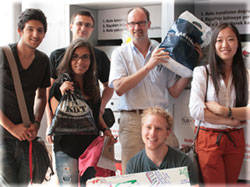 Today I am going to talk about CSR which is short for “Corporate Social Responsibility”. My students and I visited an intercultural Erasmus Intensive Program for students and lecturers from 12 different universities all over Europe organized in Izmir at Yasar University in Turkey. We all shared our knowledge and experience concerning the different approaches to CSR in different countries and learned a lot about challenges and benefits in the European context. In general you could say that CSR is meant to improve the relationship between a company and all its stakeholders. It actually must be the responsibility of us all and especially of successful companies to protect society and the environment. CSR also changes company cultures by improving the relationship with employees, suppliers, customers, the environment and the local community.
Today I am going to talk about CSR which is short for “Corporate Social Responsibility”. My students and I visited an intercultural Erasmus Intensive Program for students and lecturers from 12 different universities all over Europe organized in Izmir at Yasar University in Turkey. We all shared our knowledge and experience concerning the different approaches to CSR in different countries and learned a lot about challenges and benefits in the European context. In general you could say that CSR is meant to improve the relationship between a company and all its stakeholders. It actually must be the responsibility of us all and especially of successful companies to protect society and the environment. CSR also changes company cultures by improving the relationship with employees, suppliers, customers, the environment and the local community.
absolutely timely
We organized a roundtable discussion about CSR with lecturers from all over Europe who all participated in the ERASMUS Intensive Program in Izmir. Together with Ann Knaepen from the Catholic University in Leuven, Belgium, Carla de Lima from the Polytechnic Institute of Bragança in Portugal, Dr. Reka Jablonkai from Corvinus University Budapest in Hungary and Anne Burke from the Letterkenny Institute of Technology in Ireland we discussed different examples of CSR in those countries. We discussed, whether the middle of an economic crisis is really the right time to spend money on CSR-projects.
absolutely win-win
In this category, I would like to dive into the topic a little deeper. I am talking to Laura Brandt from the Haute Ecole de la Province de Liège in Belgium. She is a lecturer for Entrepreneurship and a bit of an expert on SMEs, which means “Small and Medium sized Enterprises”. She tells us that, in fact, 99% of all European companies are SMEs. These companies are facing tough economic challenges right now in the crisis. Laura explains why it is so important for SMEs to integrate Corporate Social Responsibility in their “core business values”. I asked her to tell us how she found out about the subject before joining the intensive seminar in Turkey. Laura gives an interesting example of a cleaning company in which CSR really turned into a win-win situtation for the company and all its stakeholders.
absolutely communicative
Our last guest for today is Adelheid Korpp. Adelheid and her husband love traveling. About 10 years ago, when they decided to travel around the world, she got in touch with an organization called Servas. Servas provides travellers with free accommodation all over the world, but you only get invited to stay at a host’s place if you obey certain rules of the system. Adelheid will explain how she got in touch with Servas and how the system works. This may, in fact, be the best way to get in touch with locals while travelling through different countries. In my opinion Servas is also an excellent example of a non-profit organisation which could be supported by companies. So, if you are a CEO and you are looking for a good CSR-cause – please do get in touch with them.
Our next show will again be coming to you from Dr. Laurent Borgmann on July 6st.
Until then –
Bleiben Sie absolut interkulturell!
The host of this show is: Dr. Laurent Borgmann
Editor: Markus Scherer
![]() Download
Download
![]() Podcast-Feed
Podcast-Feed
![]() iTunes-Abo
iTunes-Abo
absolutely intercultural 154 +++ LaMar Queen +++ MusicNotesOnline +++ Niki Davis +++ Maori +++ Pi Day +++
 If you like the podcast then LIKE US ON FACEBOOK HERE!
If you like the podcast then LIKE US ON FACEBOOK HERE!
The big news is that we have started a Facebook page which should make it easier for you to keep up with what’s happening on the podcast and to leave comments. All you have to do is click the Like button on our new Facebook page and you’ll keep up with the news from the podcast.
absolutely bland
We’ll start with Niki Davis, a professor in New Zealand who was speaking at the online Cultural Diversity in a Digital World conference in January. Actually, online conferences are quite common these days but what made this one special was its attempt to include three languages, English, Arabic and Hebrew. The conference was organised in Israel which explains the three languages chosen. But what would make you participate in an Arabic session if you don’t speak the language? Perhaps the fact that simultaneous translation was offered in the other two languages? You’ll hear Jay Hurvitz who was chairing Niki’s session refer to this as he introduced Niki to the multicultural participants. Niki was talking about the place of online communication in intercultural understanding and how the blandness of online communication makes face to face contact even more important.
absolutely pi
So now I’m going to invite you to think back to your maths lessons at school. Was that something you looked forward to? I’m actually one of those who people who enjoyed maths (for a short while) but I do know that it’s not everyone’s favourite subject. So our next piece is about how (and why) teacher LaMar Queen in Los Angeles, started using rap music to teach mathematical concepts. Even more extraordinary is the fact that there is a World Pi Day to celebrate the mathematical constant Pi which you need to work out various things to do with circles. Come on! You remember this stuff right? World Pi Day is on March 14. Why that date? You can hear more maths raps at musicnotesonline.com. So how would this go down in your town, your school? And I wonder what would be an approriate meal to eat on Pi Day? Apple pie for dessert obviously but what about the main course?
absolutely Maori
In our last category, absolutely Maori, we’ll return to that trilingual online conference in Israel and find out why it’s important to learn the Maori language in New Zealand and why it is that you can’t just use a dictionary to translate into Maori. This is just a short extract from Niki Davis’s session and although the conference was in January, it was recorded and you can find the links to this and all of the other sessions and recordings here.
Our next show will be coming to you from Dr. Laurent Borgmann on June 1st so kia ora and stay tuned!
The host of this show is: Anne Fox
Recordings and editing done with the help of Hindenburg Journalist Pro
absolutely intercultural 153 +++ South Korea +++ Germany +++ Semester abroad +++ Ideal student +++ Personal development +++
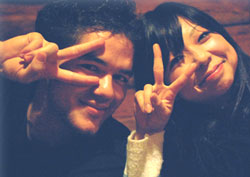 Today I am going to talk about the exciting decisions of those students who broaden their horizons by studying abroad. Furthermore we will talk to an expert who helps these students get the right information and financial support for fulfilling their dreams of living and studying in another country. Last but not least I would like to share an urban myth about an intercultural incident on a British Airways flight complete with a happy ending (at least for some of the people involved!)
Today I am going to talk about the exciting decisions of those students who broaden their horizons by studying abroad. Furthermore we will talk to an expert who helps these students get the right information and financial support for fulfilling their dreams of living and studying in another country. Last but not least I would like to share an urban myth about an intercultural incident on a British Airways flight complete with a happy ending (at least for some of the people involved!)
absolutely remarkable
In Germany it is normal for about 20% of students at universities go abroad during their studies. However, Anne Gründer, is rather special in many ways. She studied Biomathematics and chose to spend a semester studying abroad at EWHA Woman’s University in Seoul, South Korea. And because she enjoyed her time so much she actually extended her stay for a second semester. Anna also successfully learned the language with the Asian symbols that look so unfamiliar to the western eye. Now that she is back in Germany she looks back on the cultural differences she experienced and shares how she benefited from her stay. In our first category she will start by telling us why she chose South Korea as her destination for her semester abroad.
absolutely courageous
If one of our listeners is toying with the idea of coming to Germany, our interview will be particularly interesting for you. Kata Perjési is an Hungarian student. After spending a study semester abroad in Finland, she had planned to do her internship in Finland too. However, luckily for us she ended up being our new intern here at RheinAhrCampus. Kata is from Corvinus University in Budapest and will stay here for six months. In our next category she is going to tell us, why she chose Germany as her destination and what benefits she expects to get out of her stay abroad.
absolutely ideal
Our last guest for today is Wolfgang Kräft. He is working for the “German Academic Exchange Service or DAAD”. Together with his team, one of Wolfgang’s jobs is to travel through Germany and to inform German students how they could study abroad and which financial support they can get. They stop in bigger cities with their go-out mobile bus and provide students with a lot of information. In our last category Wolfgang will tell us what the ideal study abroad student should look like, how students can receive information about a semester abroad and finally he will give us advice on how your stay abroad could be the most productive time of our studies.
absolutely funny
Let me finish today with an intercultural urban myth about a black man and a white woman – a story has turned into a well-copied piece on the internet over the last decade. According to different versions this incident would have happened on about 17 different Airlines which is not very plausible but the story is nice enough to be re-told here:
“A 50- year old white woman on a British Airways flight arrived at her seat and saw that the passenger next to her was a black man. Visibly furious, she called the air hostess.
“Whats the problem, ma?” the hostess asked her
“Cant you see?” the lady said – “I was given a seat next to a black man. I can’t sit here next to him! You have to change my seat”
– “Please, calm down” – said the hostess
“I think, all the seats are occupied, but I`m still going to check if we have any.”
The hostess left and returned some minutes later.
“Madam, I spoke to the captain and he confirmed that there isn`t any empty seats in the economy class. We only have seats in the first class.”
“Look, it is unusual for our company to allow a passenger from the economy class be upgraded to the first class. However, given the circumstances, the captain thinks that it would be a scandal to make a passenger travel sat next to an unpleasant person.”
And turning to the black man, the hostess quickly said:
“Which means, Sir, if you would be so nice to pack your hand luggage, we have reserved you a seat in the first class…”
And all the passengers nearby, who were shocked to see the scene started applauding, some giving standing ovations.”
Adapted from: http://www.thatsnonsense.com/view.php?id=1481
Our next show will be coming to you from Anne Fox in Denmark on 4 May.
Until then –
Bleiben Sie absolut interkulturell!
The host of this show is: Dr. Laurent Borgmann
Editor: Markus Scherer
![]() Download
Download
![]() Podcast-Feed
Podcast-Feed
![]() iTunes-Abo
iTunes-Abo
absolutely intercultural 151 +++ Australia Day 2012 +++ multilingualism +++ patriotic celebrations +++ BBQs and Barbies +++
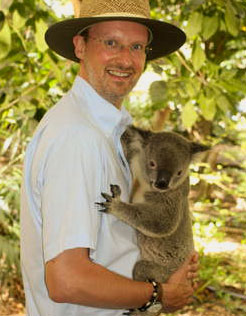
absolutely down-under
Like my last show, episode 151 also comes to you from Australia. You can listen to how I get woken up by exotic birds outside my bedroom window every morning because I thought I should record my introduction at this time of the day to share this experience with you because this has become my regular Australian alarm clock. As I live just metres from the national park I assumed they must have some kind of noisy monkeys in that park but then I discovered, it was birds, such as cockatoos, kookaburras, and some very colourful small parrots that I cannot identify. After a month in the country I finally manage to sleep through this incredible noise, and if I didn’t, I would have to get up at 4:30 every morning when this dubious concert starts. This week my class and tutorial at the University of the Sunshine Coast will not take place because of Australia Day 2012, a national public holiday. So I started asking people what this national day is all about and I received many, but sometimes contradictory answers because while this day is meant to promote and celebrate national unity it seems that every year it is accompanied by the criticism that instead of promoting multiculturalism this day commemorates the 26 January 1788 the arrival of the First Fleet at Sydney Cove where English settlers put up their flag. So opponents tend to call it “Invasion Day” and propose to change the national public holiday to another date. Let me share with you what some Australians told me about Australia Day. (If you want to find out more about Australian Identity you may want to revisit Anne’s show 76 on “mateship” and if you want to check out what my own life in Australia sounds like, check out my own last show 149.
absolutely diverse
I would like to introduce you to my neighbours here in Australia. Simone and Leonardo from Switzerland. Their background is so multicultural that it would perhaps be difficult for them to be nationalistic. I got interested when I noticed that mother and son were using several different languages even between them during an ordinary day.
Believe me I was very confused I when I saw Simone and Leonardo for the first time. From where I was sitting I thought I could distinctly hear about five or six people talking in three different languages but when I looked up I could see only two and had to realize that these two were actually using all three languages between them.
absolutely nationalistic
Australia Day is an opportunity to celebrate what is best about Australia including vegimite, BBQs, and cricket but some people are also critical of the fact that the image which is projected on this day is a very “white perspective” where the indigenous people do not really play an important role. I took my microphone into the classrooms to find out what it means to be Australian and what the day actually celebrates. Let us first listen to Mark from England and Meredith and Josh who are Australians. I also asked three international students what they knew about Australia Day and whether they could draw parallels to national or patriotic celebrations and movements in their own countries. I talked to Daniel from Sweden, Martin from the Netherlands and Clement from France.
absolutely barbie
My mate Len shares with me the secrets of the most Australian of all institutions which no Australia Day can do without. The BBQ or the “Barbie”. I had never thought about the unifying factors of this very male-dominated cooking experience. It is true that every house I have seen so far had a fixed BBQ and there are even public BBQ places in every scenic spot on the coast so that families can have an outdoor experience and bring their own food and drink.
Our next show will be coming to you from Anne Fox in Denmark on 2 March
Until then –
Bleiben Sie absolut interkulturell!
The host of this show is: Dr. Laurent Borgmann
![]() Download
Download
